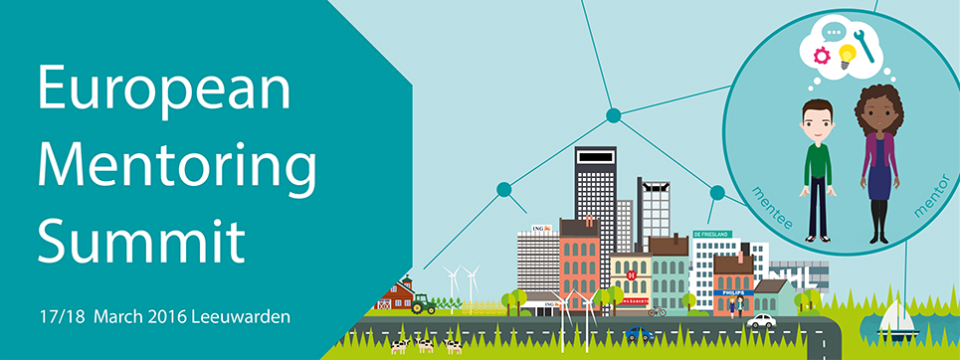Three years after the launching of the European Center for Evidence-Based Mentoring: Where do we stand and what are the next steps?
 By Szilvia Simon, European Center for Evidence-Based Mentoring
By Szilvia Simon, European Center for Evidence-Based Mentoring
In the spring of 2016, the European Center for Evidence-Based Mentoring was launched in Leeuwarden, the Netherlands, in the presence of 150 mentoring professionals from all over Europe. A mainly grass-root initiative of strong mentoring practitioners and researchers, with the mission of increasing the quality, reach and visibility of the mentoring field in Europe. We do this in strong collaboration with the UMass MENTOR Center for Evidence-Based Mentoring and the National Mentoring Partnership to learn from their large amount of existing know-how.
We are now 3 years further in building a network and expanding the community and we have reached important results together.
As many of you know, mentoring has been part of the development of “European civil society” for more than 20 years. In the past decade, more and more mentoring programmes emerged. Why? As practice and evidence show[1], mentoring is a unique instrument that can be connected to a diversity of European, national and regional challenges and priorities. It works – under the right conditions – for different topics, target groups, goals and organizations.
As in the US, we apply mentoring to connect people, generations, different social backgrounds and ethnic groups, and to contribute to the integration of migrants, a better educational level of young people and an inclusive and entrepreneurial / innovative society. As activities of the European Center show in the past 3 years[2], there is much need for knowledge exchange, knowledge development and an advocacy role. We have a bi-annual European Mentoring Summit (2016 in Leeuwarden NL, 2018 in Berlin, DE, and 2020 in Barcelona,ES) hosted by regional mentoring networks with strong ambitions.
To connect to decision- and policy makers, we organize a bi-annual Brussels Meet&Match, with the motto: ‘ Our joint visits to Brussels are our signature of showing the EU government our shared belief in the impact of mentoring’. Beside this, we organize short courses, job shadowing, online workshops and seminars. Altogether, more than 700 people are part of the European mentoring network by now.
Practitioners seek the opportunity to meet, showcase their own mentoring models and learn from the example of others beyond their national borders. They wish to engage in a process of quality improvement. They also look for ways to showcase mentoring to authorities as an acknowledged intervention. The membership model we launched last year is part of these ambitions and offers extra services for members.
The European Center is supported by the researchers’ committee that takes the lead in quality thinking and knowledge development as a part of a learning process of practitioners. We have a strong drive to connect research and practice in all action, to ultimately increase the quality of the mentoring relationships.
Save two dates for the coming year: in collaboration with Prof. Jean Rhodes, the European Center organizes a Short Course on the topic of Mentoring for Social Inclusion, on the 7th and 8th of October 2019 in Leeuwarden, NL.
The upcoming European Mentoring Summit will take place in Barcelona, ES on the 18th, 19th and 20th of March 2020, in collaboration with the Coordinadora de Mentoria Social.
As past events show, the European mentoring field is eager to learn from US and other expertise in the world. And, the other way around! So let’s keep connected and learn from each other, just like a mentor and mentee do!
For more information, you can visit our website www.ecebmentoring.eu where you can subscribe to our free newsletter and apply for membership.
European Center for Evidence-Based Mentoring
[1] See www.ecebmentoring.eu for a collection of research papers
[2] See summaries of activities and event on our website www.ecebmentoring.eu













